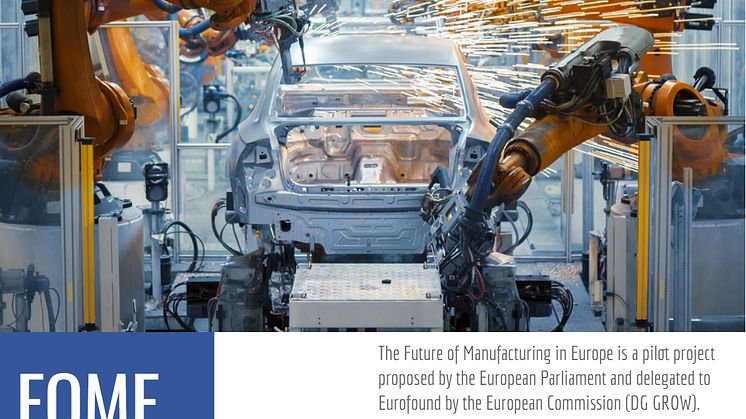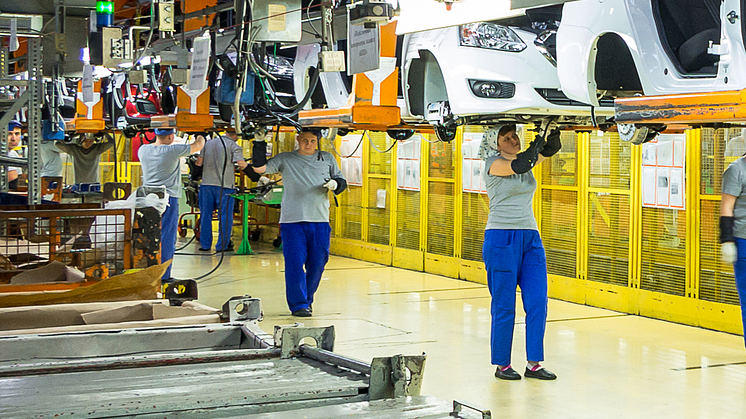
News -
Disruption on the horizon: Game changing technologies in manufacturing in Europe
Technological innovation is permanent and ongoing, but the rapid pace of technological change and advancement in the 21st Century has brought with it the increased potential for disruptive innovation, or 'game changing technology'. Disruption not only happens at a product level, but can also involve the entire process related to its production. This has direct consequences for the working conditions of individuals employed in that area, as well as the broader world of work and society in general.
The new report Game changing technologies: Exploring the impact on production processes and work summarises the findings of five case studies on the likely impact of game changing technologies on production and employment in the manufacturing sector in Europe up to 2025. These are advanced industrial robotics; industrial internet of things; additive manufacturing; electric vehicles; and industrial biotechnology.
The report shows that production processes will become increasingly digital and less mechanical between now and 2025. It also emphasises the importance of data flows and requirements for data manipulation and analysis. In terms of the labour market, employment demand in manufacturing will most likely further shift away from traditional production line work to increasingly higher skilled profiles. These changes create a number of challenges and possibilities for employers and workers alike.
Read the report in full: Game changing technologies
| This report was released under the Future of Manufacturing in Europe (FOME) project, which was proposed by the European Parliament and delegated to Eurofound by the European Commission (DG Grow). Read more about the project and its activities: Future of Manufacturing in Europe |



